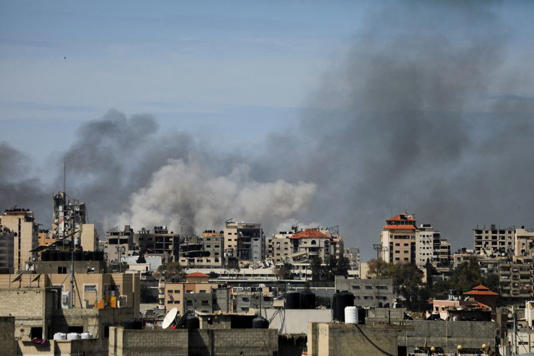The recent order by the International Court of Justice (ICJ) directing Israel to take immediate action to prevent famine in Gaza has sparked global attention and debate. As tensions continue to escalate between Israel and Hamas, the humanitarian crisis in Gaza has reached a critical point, prompting urgent calls for intervention from the international community. This article will delve into the details of the ICJ’s order, the ongoing conflict between Israel and Hamas, and the implications for the people of Gaza.
Background: The Conflict in Gaza
The conflict between Israel and Hamas, the militant group that governs the Gaza Strip, has a long and complex history rooted in territorial disputes, security concerns, and competing nationalist aspirations. Gaza, a densely populated enclave home to approximately two million Palestinians, has been subjected to a blockade by Israel since 2007, severely restricting the movement of people and goods in and out of the territory.
In recent years, periodic outbreaks of violence have erupted, resulting in devastating consequences for civilians on both sides. The latest escalation began in March 2024, when clashes between Israeli forces and Palestinian militants intensified, leading to a surge in casualties and destruction. The situation deteriorated rapidly, with reports of widespread food shortages, inadequate medical supplies, and deteriorating living conditions in Gaza.
The ICJ’s Order: Urgent Action to Prevent Famine
In response to a petition filed by South Africa accusing Israel of genocide in Gaza, the International Court of Justice issued a landmark order calling for immediate measures to address the humanitarian crisis in the territory. The court unanimously ruled that Israel must take all necessary and effective action to ensure basic food supplies to Gaza’s Palestinian population and halt the spreading famine.
The ICJ’s order reflects growing international concern over the dire humanitarian situation in Gaza and underscores the urgent need for action to prevent further suffering and loss of life. However, the effectiveness of the court’s directive remains uncertain, as Israel has historically been resistant to external pressure and has defended its actions as necessary for national security.
Hamas Calls for Ceasefire: Seeking an End to the Violence
While the ICJ’s order represents a significant step toward addressing the humanitarian crisis in Gaza, the underlying conflict between Israel and Hamas remains unresolved. In response to the court’s ruling, Hamas, which controls Gaza, called for an immediate ceasefire to halt the suffering of the Palestinian people.
Hamas’s appeal for a ceasefire underscores the devastating impact of the conflict on civilians in Gaza and reflects the organization’s recognition of the need to end the cycle of violence and instability. However, achieving a lasting ceasefire will require concerted diplomatic efforts and a willingness to address the root causes of the conflict, including the blockade of Gaza and the broader Israeli-Palestinian conflict.
International Response: Calls for Diplomatic Engagement
The ICJ’s order and Hamas’s call for a ceasefire have reignited calls for diplomatic engagement and international mediation to de-escalate the conflict and address the humanitarian crisis in Gaza. The United Nations, regional organizations, and key international stakeholders have urged all parties to exercise restraint, respect international law, and prioritize the well-being of civilians.
Efforts to broker a ceasefire and facilitate humanitarian assistance to Gaza are underway, with mediators working to bridge the divide between Israel and Hamas and find a path toward peace and stability. However, achieving a sustainable resolution to the conflict will require sustained diplomatic engagement, political will, and a commitment to addressing the underlying grievances of both sides.
Toward a Path of Peace and Stability
The ICJ’s order to halt the Gaza famine and Hamas’s call for a ceasefire represent important steps toward alleviating the suffering of civilians caught in the crossfire of the Israeli-Palestinian conflict. However, the road to peace and stability remains fraught with challenges, including entrenched political divisions, security concerns, and competing nationalist aspirations.
As the international community continues to grapple with the humanitarian crisis in Gaza, it must prioritize diplomacy, dialogue, and cooperation to de-escalate tensions, address the root causes of the conflict, and pave the way for a just and lasting resolution. Only through collective action and a commitment to peace can the people of Gaza and the wider region hope to build a future free from violence and insecurity.
